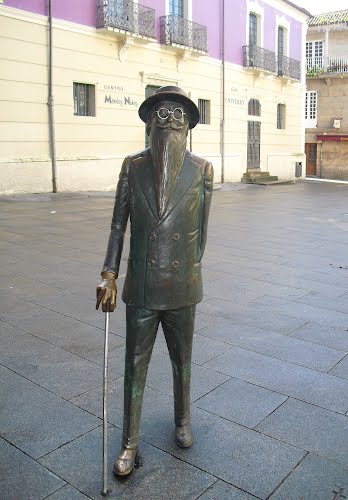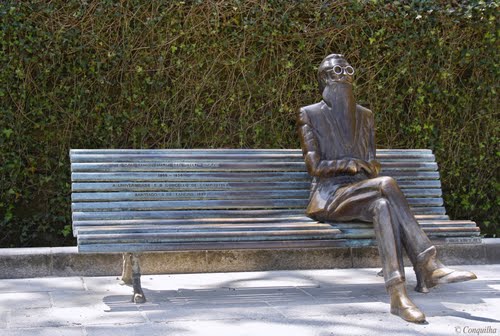<Back to Index>
- Dramatist Ramón María del Valle-Inclán y de la Peña, 1866
PAGE SPONSOR
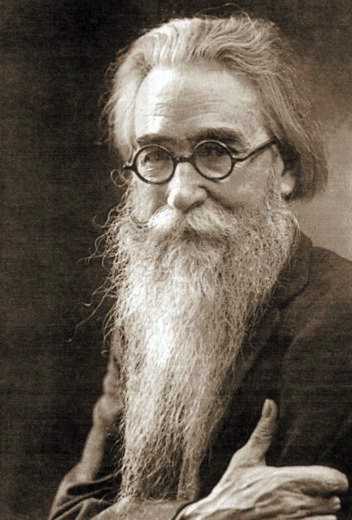
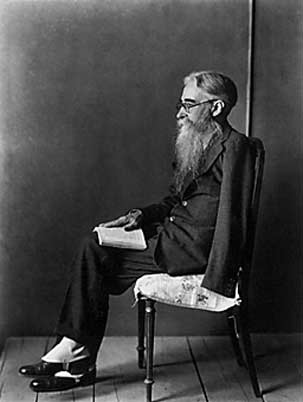
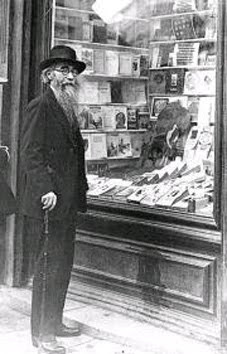
Ramón María del Valle - Inclán y de la Peña (in the village András, in the comarca of Vilanova de Arousa, Galicia, Spain, 28 October 1866 – Santiago de Compostela, 5 January 1936), Spanish dramatist, novelist and member of the Spanish Generation of 98, is considered perhaps the most noteworthy and certainly the most radical dramatist working to subvert the traditionalism of the Spanish theatrical establishment in the early part of the 20th century. His drama is made all the more important by its influence on later generations of Spanish dramatists. Therefore, on the national theater day, his statue in Madrid receives the homage of the theatrical profession.
His early writings were in line with French symbolism and modernism; however, his later evolution took his works to most radical formal experiments. He despised literary realism and openly disregarded Benito Perez Galdós, its maximum Spanish representative. His political views, accordingly, changed from traditional absolutism (in Spain known as Carlismo) towards anarchism. This also caused him problems.
All his life he struggled to live up to his bohemian ideals, and stayed loyal to his steticist beliefs. However, he had to write undercover for serialized popular romans. During a row with a fellow writer his wrist was wounded and became infected, and he lost his arm.
Valle - Inclán's work (for example, Divine Words (Divinas palabras) and Bohemian Lights (Luces de Bohemia)) attacks what he saw as the hypocrisy, moralizing and sentimentality of the bourgeois playwrights, satirizes the views of the ruling classes and targets in particular concepts such as masculine honor, militarism, patriotism and attitudes to the Crown and the Roman Catholic Church. His drama also featured irreverent portrayal of figures from Spain's political past and deployed crude, obscene language and vulgar imagery in a mocking attack on theatrical blandness.
In addition to being politically subversive, though, Valle - Inclán's plays often required staging and direction that went far beyond the abilities of many companies working in the commercial theater, often featuring complex supernatural special effects and rapid, drastic changes of scene. For this reason, some of his works are regarded as closet dramas.
Valle - Inclán also wrote major novels including the Tyrant Banderas (Tirano Banderas), which was influential on the Latin American 'dictator' novel (for example, I, the Supreme by Augusto Roa Bastos), although it was received with disdain by many Spanish American authors, Rufino Blanco Fombona for example, pokes fun of "the America of tambourine" ("la América de pandereta") of that novel where you could be in the jungle one day and the Andes the next. Some critics view him as being the Spanish equivalent to James Joyce; however, due to a lack of translations his work is still largely unknown in the English speaking world, although his reputation is slowly growing as translations are produced. Many have found links in both - Galician Valle - Inclán and Irishman Joyce - authors' common Celtic heritage.
